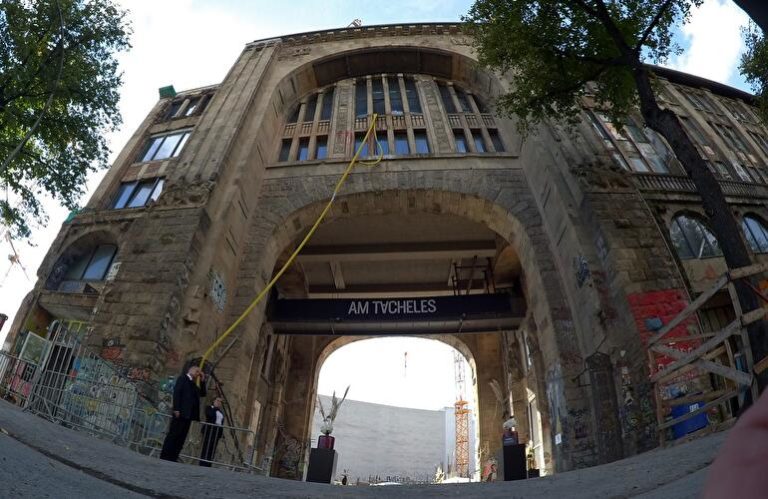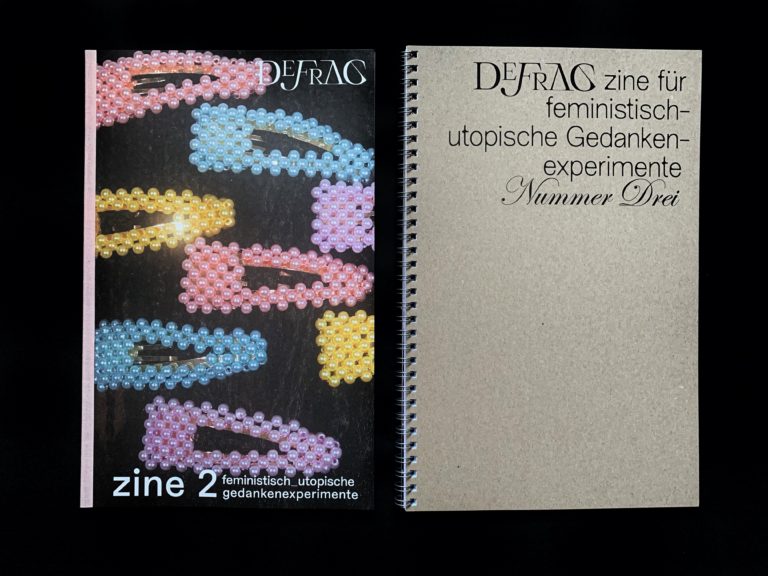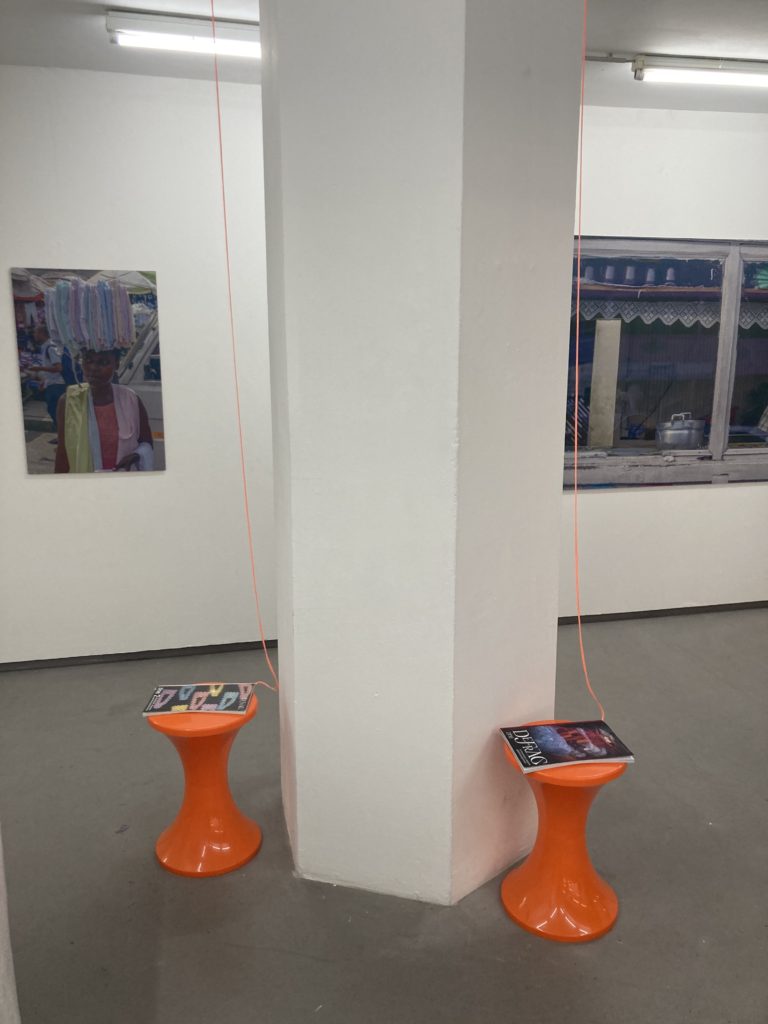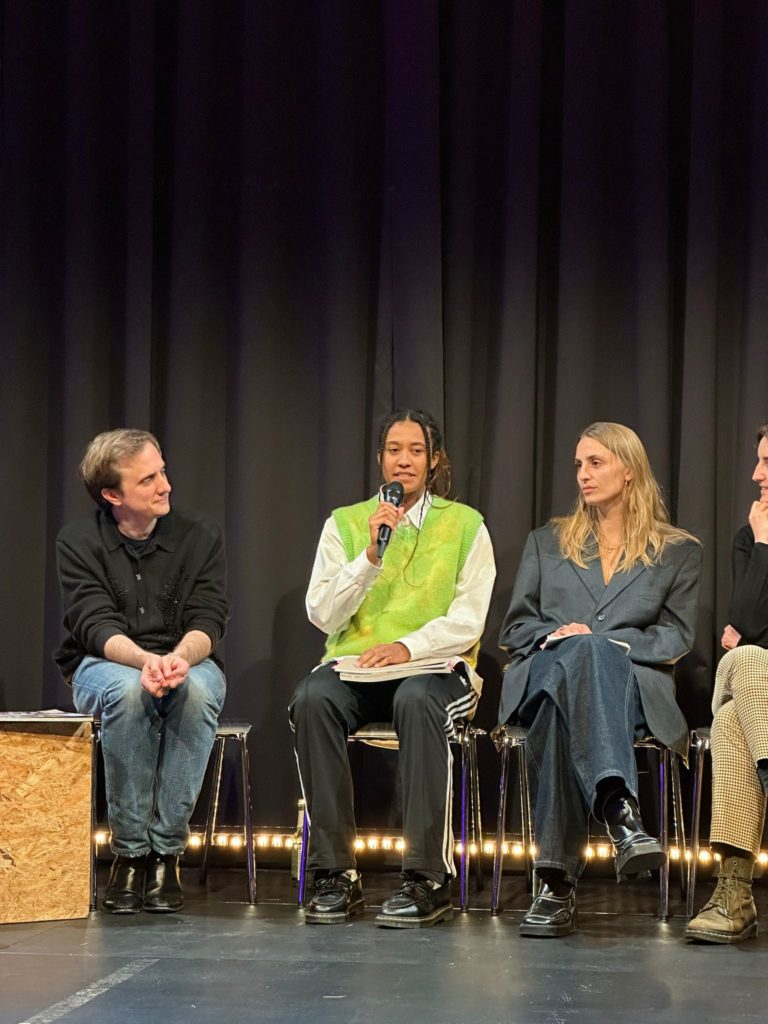Author: Lisa Tracy Michalik
Germany’s independent art, culture, and publishing scene is a dynamic, daring landscape driven by passion and resilience. From artist-run spaces to feminist zines, it fosters creative freedom and challenges mainstream narratives. Yet, this vital sector faces mounting obstacles, including precarious funding, gentrification, and limited access to resources. As cultural hubs like Düsseldorf’s defrag zine demonstrate, independence empowers bold storytelling and diverse voices. However, the scene's survival depends on securing structural support amidst financial and political uncertainties.

Tacheles Berlin, prior to being sold – © dpa
A Brief Overview of the Independent Cultural Scene
Germany’s independent arts, culture, and publishing scene has always been a hub for innovative daring new concepts and ideas. Unfortunately, it is also the most precarious part of the culture, media, and publishing sector. Especially the venues of the independent performing arts scene, such as tanzhaus nrw (Düsseldorf), PACT Zollverein (Essen), Kampnagel (Hamburg), FFT (Düsseldorf), Hellerau (Dresden), or Mousonturm (Frankfurt), which are unique in Germany in the way they provide training and performance spaces for independent artists and ensembles. Independent players work in a self-determined, self-organised, and flexible way with regard to the content of their works, events, and methods. They evolve in a variety of venues be it former industrial buildings, cultural centres, pop-up locations, artist-run spaces, or project spaces. Many also work closely with the local community in their area. Across Germany, different groups, initiatives, and coalitions have been formed to address the multifaceted challenges facing the independent scene and to develop concepts and campaigns for cultural policy–like the Coalition of the Independent Arts Berlin, founded in 2012 as an interdisciplinary advocacy group to support the interests of Berlin’s independent arts community.
Its Many Challenges
The precarious financial situation is one of the most pressing problems facing the independent scene and is linked to multiple factors: financial insecurity, rising rental costs, displacement from urban centres, and the loss of work and performance spaces. The structural problems of funding in Germany arise from on short funding cycles, usually one to two years per project, rather than long-term funding, which leads to little planning security for ongoing artistic work. Unfortunately, the Federal Government for Culture and Media (BKM) has announced plans to cut funding for the six federal cultural funds by almost half in 2025. Only 18 million euros will be available for the Art Fund, Performing Arts Fund, Literature Fund, Sociocultural Fund, Translators' Fund, and Music Fund, compared to around 34.3 million euros this year.
Another challenge is the displacement of independent art, culture, and publishing initiatives and individuals from urban centres due to gentrification. It is very difficult to find suitable yet affordable work and rehearsal spaces, and many independent off-spaces such as Tacheles in Berlin have had to close or relocate, resulting in the dissolution of established networks and the decline of historically grown cultural milieus.
For many years, Tacheles was a well-known and popular alternative art and culture venue. Today, little remains of the project, which included numerous studios, exhibition spaces, a cinema, a bar, and larger spaces for concerts, performances, or readings. It has been replaced by luxury condos, international corporations, and the German branch of the Swedish museum Fotografiska. Brause, a Düsseldorf arts and culture collective based in a former petrol station and serving the local community, was also forced to close due to plans to build luxury apartments. As yet, there are no clear strategies and counter-measures that German cities have committed to in order to manage the commercial pressures generated by their popularity in a way that preserves the conditions for a dynamic and diverse cultural life.

defrag issue 02 and 03 – © defrag zine
Publishing in Germany
Meanwhile, the German publishing landscape is known for its high concentration of ownership. Overall, it consists of large media groups like Bertelsmann (publishing houses such as Random House or Penguin); various publishers of academic texts, literature, and fiction; media groups with a focus on regional and national newspapers; digital media; and of course of independent publishers such as Korbinian Verlag, Stolze Augen books, Literarische Diverse Verlag and others. However, while there are different segments and players in the landscape, one stands out in its size, influence, and large ownership of many brands: the Axel Springer Group. With a circulation of around 1.2 million, its tabloid newspaper BILD is the most widely circulated daily newspaper in Germany, making it one of the country’s most influential. Springer’s digital offering is already the largest in Europe and the fifth largest in the world. The group has been criticised at many levels and on many occasions over the past decades, notably for its reactionary political stance and opinion-forming, biased reporting, sensationalist headlines, and allegations of sexual misconduct. Given Springer’s constant quest for growth, power, and influence, as well as its market-based and authoritarian structures, it is particularly important to promote independent alternatives. One such important alternative is Missy Magazine, Germany’s largest and most important magazine for independent feminist journalism. Missy produces six issues a year and has a permanent editorial office in Berlin. Missy’s stance is one of intersectional feminism and inclusivity, and its work focuses on the perspectives of FLINT and BIPoC. While this work is extremely important, it is also precarious and dependent on community support such as crowd-funding and steady subscriptions.

defrag exhibition at Labor, Köln during Internationale Photoszene Köln 2023 – © defrag zine
Independent Publishing with defrag zine
From publishing houses to events to mediation, much of what makes up the literary sector outside of large media corporations is based on individual initiative. Independent publishers, serial reading events, and freelance organisers follow the rule of “do it yourself”. Independent publishing in Germany is only possible with a lot of passion. It is done with heart and soul and often with a lot of voluntary work. It is then essential to have a network and allies. This is true for defrag zine. defrag is a self-published magazine based in Düsseldorf and was founded in May 2020 by Ina Holev, Lan Nguyen, Jolande Hörrmann and myself, Lisa Tracy Michalik. We have been friends for many years and it has long been our dream to publish together. Our aim is to provide a meaningful platform for young writers, illustrators, and artists to highlight and publish their work and to build new networks and connections. defrag is an open format and combines artistic positions with an intersectional feminist stance. In defrag, poems are presented alongside essays, and photographs take their place alongside cultural analyses and playlists. “defrag” stands for defragmentation in information technology, which means the restructuring and rearranging individual elements. In our zine, we also want to reassemble thoughts and give space to creative processes. Our own contributions are complemented by curated submissions. We do not work on thematic focuses. Rather, we want to offer as much freedom as possible and are interested in anything that can be printed and learn from the process of different submissions coming together to form a coherent issue. The zine form is particularly popular in feminist subcultures. It is a term for a self-published, non-commercial, do-it-yourself work. We are guided by these principles. Recent issues have covered topics such as writing itself, love, the meaning of names, utopian visions of the future, and decolonial film criticism. As a collective, we want to help shape the literary and cultural scene in Düsseldorf and Germany. defrag is non-commercial and a project that comes straight from our hearts. We do not directly benefit financially from the work we put into defrag. We depend on funding for the publication to cover printing costs and to pay contributors and designers a reasonable fee. Being independent allows us to stick by our principles of the utmost artistic freedom with a queer-feminist ethos–to experiment and to learn, to push forward resistant storytelling through image, text, and design–, a productive process that breaks down established narrative traditions and encourages new ways of communicating.

defrag reading and panel discussion with DAS WETTER and die Kurze at Literaturtage Düsseldorf 2024 – © defrag zine
None of this would be possible under commercial pressure. Being independent allows us to set our own priorities and be creative in the process. The biggest challenge is to do all of the work from home with limited capacity while holding down other jobs. As described above, financial resources are also important for us, as are the factors of time and space. It would be very helpful to have an editorial office, but rent prices and the current funding situation simply don’t allow it. Nevertheless, our dream for the future is structural support to secure the future of independent art, culture, and publishing–especially in the current uncertain political climate in Germany, characterised by the fall of the government and the rise of the far right.
References
Über uns (About Us) – Bündnis Freie Szene Berlin
Über Missy (About Missy) – Missy Magazine
Haushaltskürzungen (Budget Cuts) – Fonds Darstellende Künste
Fabian Vugrin, "Das System Springer" (The System of Springer) – Jacobin Magazin
Published on January 14th, 2025
About the author:
Lisa Tracy Michalik is an author, media culture scholar, curator, and co-founder and editor of defrag zine. She understands her writing as decidedly queer and situated in an Afro-diasporic tradition. Most recently she read at She Said and was part of the Writer's Room of the series “Schwarze Früchte” by Lamin Leroy Gibba, which has been on ARD Mediathek since October 2024. Her texts can be found in Sisters and Souls 2, Parabolis Virtualis 3, and Missy Magazine, among others. She won 2nd place in the Cologne Prize for Young Literature and the Audience Award. She is currently writing her debut novel.